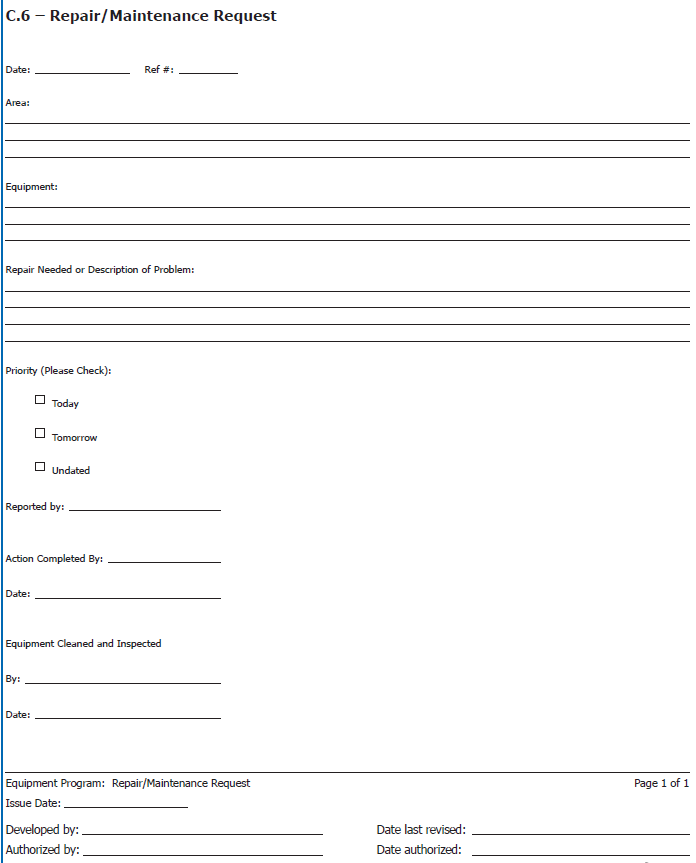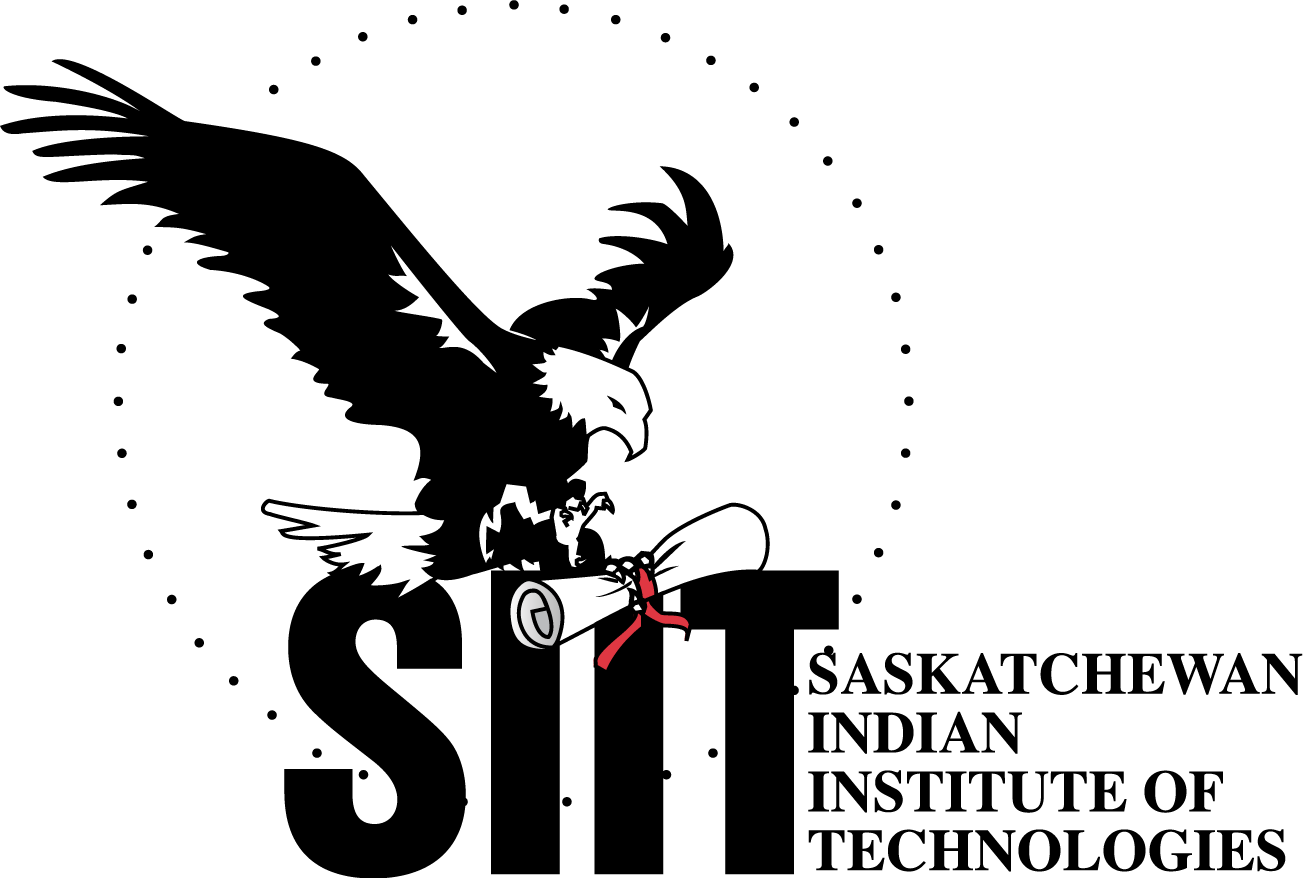49 Recording Equipment Failures
Michael Hrycay
Learning Objectives
Summarize details to record equipment failures and corrective actions.
Records are at the core of a successful maintenance program. Records document maintenance and calibration activities to plan future activities and equipment replacement.
Preventative Maintenance and Callibration Program (PMC)
A written PMC Program includes:
- The person responsible for each task
- Layout, blueprint or floor plan of plant showing locations of equipment and infrastructure (e.g. boiler rooms and compressors)
- Manufacturer’s documentation such as manuals, drawings and parts lists
- Description of maintenance activities such as lubrication, cleaning, or changing filters
- Description of calibration activities such as calibrating scales, and sensors
- SOPs to be followed for each activity
- Order in which activities are to be performed
- Materials or chemicals to be used such as lubricant or solvent
- Records to be kept
- How to prevent cross-contamination
- Corrective actions for deviations
- Activity frequency
- Recording system
For calibration, the program should also identify:
- The maximum error allowed before corrective action (e.g. ±1 g; ±5°C)
- Corrective action to be taken when instrument does not meet specification
- Calibration methods based on approved standards
Record-keeping
Records are essential to the PMC program. Records can:
- Be based on records for each piece of equipment
- Be based on work orders and activities
- Software can be used to track activities
Your employer will have its own specific recording system for you to follow.
Record-keeping for Maintenance Activities
For regular maintenance, records need to indicate:
- Work order numbers
- Reason for the maintenance
- Equipment identification
- Maintenance activity (e.g. equipment inspection, adjustment and part replacement)
- Dates
- Person in charge
Record-keeping for Calibration Activities
When recording calibration activities, the following needs to be recorded:
- Instrument calibrated
- Date
- Person doing calibration
- Reason for calibration
- Findings from calibration
- Corrective action taken
Value of Good PMC Records
Good record-keeping allows planning for:
- Future maintenance activities
- Equipment retirement and purchase
- Provides evidence of due diligence in the case of failure
Recording a Failure
When maintenance requirement arises, a form similar to the following may be used by your employer to record the event.


